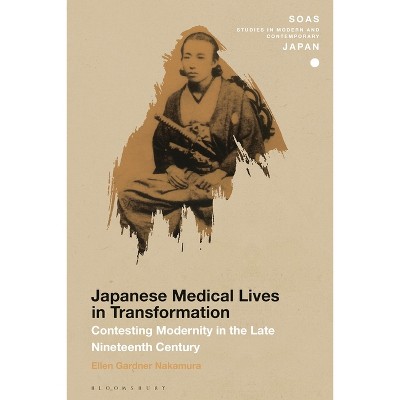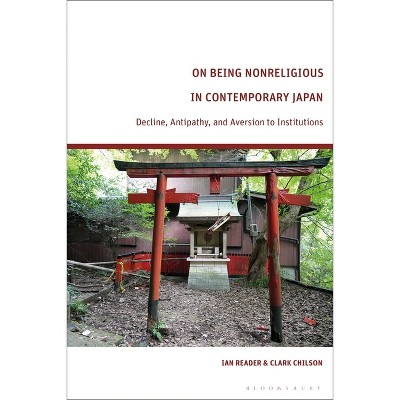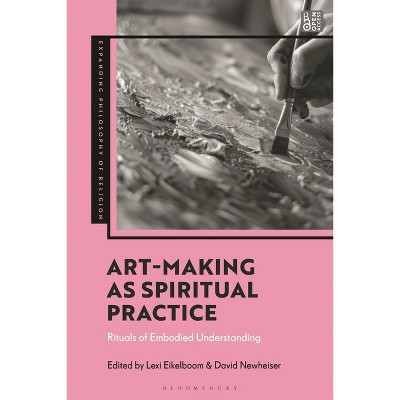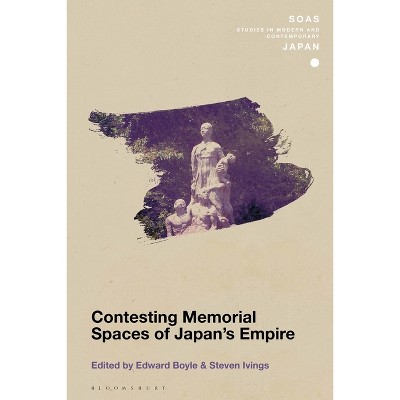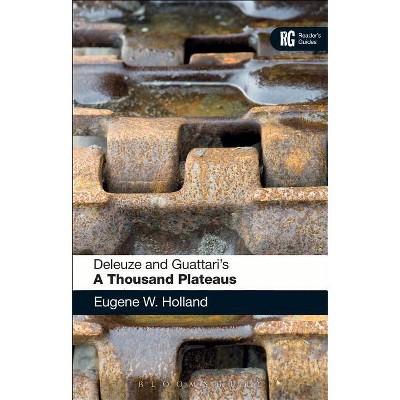Sponsored

The Hirabayashi Hatsunosuke Reader - (Soas Studies in Modern and Contemporary Japan) by Seth Jacobowitz & Christopher Gerteis & Aaron William Moore
In Stock
Sponsored
About this item
Highlights
- This edited volume assembles a wide array of writings by Hirabayashi Hatsunosuke, one of 20th-century Japan's foremost intellectuals, translated for the first time into English.
- About the Author: Seth Jacobowitz is Assistant Professor of Japanese in the Department of World Languages & Literatures at Texas State University, USA.
- 256 Pages
- History, Asia
- Series Name: Soas Studies in Modern and Contemporary Japan
Description
About the Book
A much-needed English translation of writings by one of Japan's major 20th-century cultural critics, Hirabayashi Hatsunosuke, supported by a wealth of critical essays covering key areas.Book Synopsis
This edited volume assembles a wide array of writings by Hirabayashi Hatsunosuke, one of 20th-century Japan's foremost intellectuals, translated for the first time into English.
It begins with an introduction by the editors, Seth Jacobowitz and Aaron William Moore, that contextualizes Hirabayashi's significance as a non-doctrinaire Marxist cultural critic, visionary thinker, and much-beloved popular fiction writer. The 'Short Stories', features a selection of Hirabayashi's literary work, including science fiction ('The Artificial Human'), detective fiction ('This is How I Died!'), and more idiosyncratic works such as 'Demon at the Pulpit', an antitheist and anticlerical story. The 'Essays' provides a range of groundbreaking critical and theoretical tracts that address such topics as 'The Social Basis of Modernism', 'The Feminisation of Culture', 'Political Value and Artistic Value: A Re-Appraisal of Marxist Literary Theory', 'Film as a Mechanism of Americanization', 'The Technological Revolution in Literature and the Arts', and many more. Hirabayashi's systematic approach to cultural theory befitting the era of massification in the 1920s places him front and centre in the hothouse intellectual climate of pre-war Japan. It also affords striking parallels to the leading thinkers in Europe such as Walter Benjamin and Antonio Gramsci, thereby forming an integral part of the history of global modernity.Review Quotes
"A major thinker of the twentieth century, Hirabayashi Hatsunosuke engages with media, class, politics, and gender forcing us to rethink our presentist notions about film, detective fiction, capitalism, and reproductive labor. This exemplary selection of his works (fiction and non-fiction) from the peak of his career captures his creative artistic brilliance and remarkably prescient thought processes." --Jonathan E. Abel, associate professor in the Department of Comparative Literature and Asian Studies, The Pennsylvania State University, USA
"This volume examines the polyglot and politically charged world of one of Japan's most intriguing modernist intellectuals of prewar era. Hirabayashi's production stretched from popular to politics, and film, engaging with the burgeoning discourse on technology and society. He observed Japan at a crucial time, positing if 'conquering the world of fantasy would allow it to become a reality." --Barak Kushner, Professor of East Asian History, University of Cambridge, UK "The brilliant editors Seth Jacobowitz's and Aaron William Moore's timing is uncanny. Together with a cast of other talented translators they have not only secured Hirabayashi Hatsunosuke's works' survival (Überleben) and continuing life (Fortleben), as Walter Benjamin would have it, but have indeed given a second life to one of interwar Japan's most visionary, critical voices." --Sabine Frühstück, Distinguished Professor and Koichi Takashima Chair, University of California at Santa Barbara, USA "Consciously departing from Orthodox Marxism, Hirabayashi innovatively contributed to early twentieth-century understandings of mass culture via the lens of science and technology. Through his own stories and writings on new art forms ranging from detective stories to radio and film, he reflected and refracted modern Japanese popular intellectual life. Jacobowitz and Moore's reader offers us an intriguing contribution to the global intellectual history of modernities." --Sho Konishi, Director Nissan Institute of Japanese Studies, University of Oxford, UKAbout the Author
Seth Jacobowitz is Assistant Professor of Japanese in the Department of World Languages & Literatures at Texas State University, USA. He is the author of Writing Technology in Meiji Japan: A Media History of Modern Japanese Literature and Visual Culture (2016), which won the International Convention of Asia Scholars Book Prize in the Humanities in 2017. He is the translator from Japanese of The Edogawa Rampo Reader (2008) and from Portuguese of Fernando Morais' Dirty Hearts: The History of Shindo Renmei (2021).
Aaron William Moore is Handa Chair of Japanese-Chinese Relations at the University of Edinburgh, UK. He is the author of many articles on Chinese and Japanese wartime childhood and youth, as well as two books: Writing War (2013), which analysed over 200 combat soldiers' diaries from China, Japan, and the United States, and Bombing the City (2018), which compared the air raid experiences of civilians in British and Japanese regional cities.Shipping details
Return details
Frequently bought together

Trending Non-Fiction











